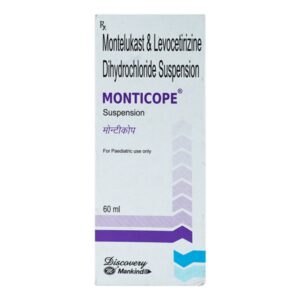Description
About Prospan Sugar Free Cough Syrup
Prospan Sugar Free Cough Syrup belongs to the class of herbal medications used to treat sore throat, cough, and phlegm in adults and children over two years. Coughing is the body’s mechanism of removing irritants from the airways and protecting itself against illness. There are two sorts of coughs: dry cough and chesty cough. A tickly cough or dry cough produces no harsh or thick mucus, whereas a chesty cough (wet cough) produces mucous or sputum to help clear the airways.
Prospan Sugar Free Cough Syrup contains Ivy leaf dry extract, a herbal medication. Ivy leaf dry extract acts as a mucolytic agent that works by thinning and loosening phlegm or mucus in the lungs, windpipe and nasal passage, thereby helping to cough out easily.
Your doctor will decide the dose and duration of Prospan Sugar Free Cough Syrup based on your medical condition. In very rare cases, Prospan Sugar Free Cough Syrup may cause stomach upset, diarrhoea, nausea, and vomiting. The majority of these side effects do not necessitate medical treatment and fade away gradually over time. However, if the side effects persist or worsen, please visit your doctor.
Do not use Prospan Sugar Free Cough Syrup without a doctor’s advice if you had a skin reaction or irritation to any medicine. Consult your doctor before using Prospan Sugar Free Cough Syrup if you are pregnant or breastfeeding. Before taking Prospan Sugar Free Cough Syrup , inform your doctor about your medical history and other medications you are currently taking in order to rule out any possible negative effects. It is unknown whether it is safe to consume alcohol with Prospan Sugar Free Cough Syrup . However, it is advisable not to take or limit alcohol as a safety measure. Prospan Sugar Free Cough Syrup should be used with caution in children below two years.
Uses of Prospan Sugar Free Cough Syrup
Medicinal Benefits
Prospan Sugar Free Cough Syrup is an expectorant containing dry ivy leaf extract. It works by thinning and loosening phlegm or mucus in the lungs, windpipe and nasal passage, thereby helping to cough out easily. It soothes the airways as well. Prospan Sugar Free Cough Syrup is a sugar-free cough syrup suitable for people with diabetes.
Directions for Use
Storage
Side Effects of Prospan Sugar Free Cough Syrup
- Stomach upset
- Diarrhoea
- Nausea
- Vomiting
Drug Warnings
Do not use Prospan Sugar Free Cough Syrup without a doctor’s advice if you had a skin reaction or irritation to any medicine. Consult your doctor before using Prospan Sugar Free Cough Syrup if you are pregnant or breastfeeding. Before taking Prospan Sugar Free Cough Syrup , inform your doctor about your medical history and other medications you are currently taking to rule out any possible negative effects. It is unknown whether it is safe to consume alcohol with Prospan Sugar Free Cough Syrup . However, it is advisable not to take or limit alcohol as a safety measure. Prospan Sugar Free Cough Syrup should be used with caution in children below two years.
Drug Interactions
Drug-Drug Interactions: No interactions were found.
Drug-Food Interactions: No interactions were found.
Drug-Disease Interactions: No interactions were found.
Habit Forming
Diet & Lifestyle Advise
-
Drink plenty of fluids every day. It helps thin mucus and makes coughing easier.
-
Consume complex carbohydrates such as lentils, beans, barley, oats, quinoa, bran, peas, and potatoes with skin.
-
Eat potassium-rich foods like bananas, asparagus, oranges, potatoes, avocados, dark leafy greens, and beetroots because potassium is important for lung function and a potassium deficiency can cause breathing problems.
-
Consume protein-rich foods like meat, fish (especially salmon, sardines, and mackerel), eggs, and poultry.
-
Learning breathing exercises will assist you in moving more air into and out of your lungs.
-
Exercise on a regular basis to strengthen your breathing muscles and immune system.
-
Limit or avoid caffeinated beverages such as tea, coffee, soda, and energy drinks.
-
Quit smoking because it irritates the lungs and aggravates breathing problems.
Special Advise
-
If the cough persists for more than one week, consult your doctor.
Disease/Condition Glossary
Cough: Coughing is a body’s way of clearing irritants (allergens) from airways and preventing infection. The cough may be dry or productive. A tickly cough or dry cough produces no harsh or thick mucus, whereas a productive cough or wet cough brings up sputum (phlegm, mucus and other matter) from the lungs. Cough is commonly caused as a response to allergy or viral infection but coughing up mucus is possibly an indication of infection in the respiratory tract.






Reviews
There are no reviews yet.